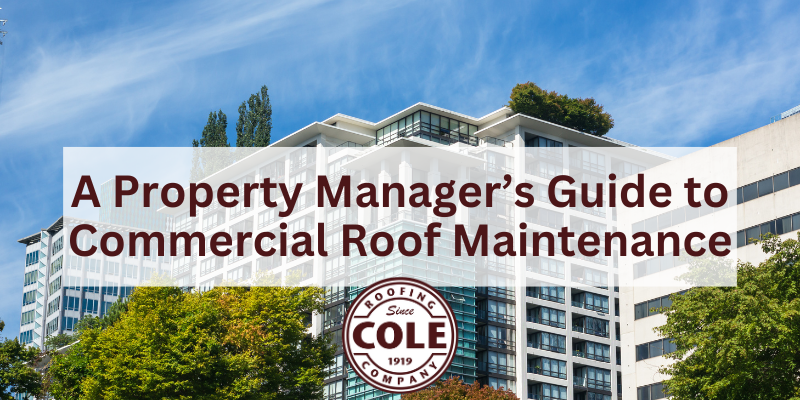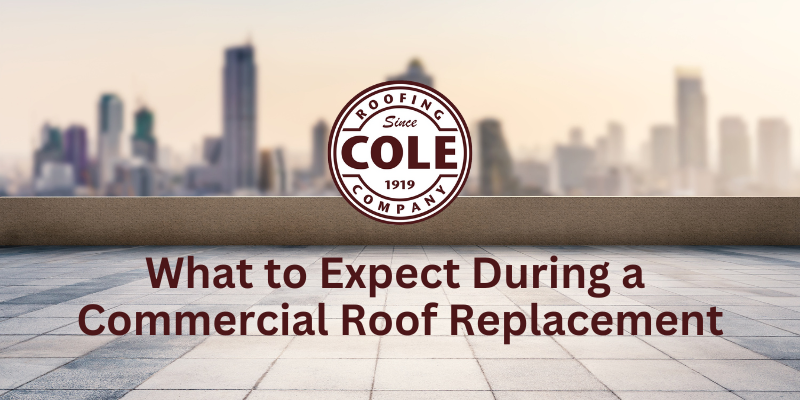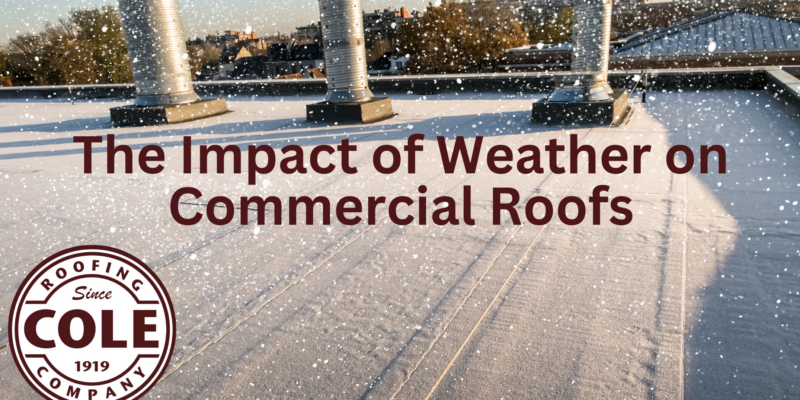At Cole Roofing, we know that a healthy roof is crucial for protecting your business. Ignoring minor roofing issues can lead to costly repairs down the road. That’s why we’re sharing some common commercial roofing problems and tips on how to spot them early. Proactive maintenance is key to extending the life of your roof and avoiding unexpected expenses.
- Leaks: The Silent Threat
Leaks are perhaps the most common roofing problem. They can be caused by a variety of factors, including damaged flashing, punctures, or general wear and tear. While a dripping ceiling is an obvious sign, leaks can often be subtle and go unnoticed for extended periods, leading to significant water damage.
- How to Spot Them: Look for water stains on ceilings or walls, damp or musty odors, and bubbling paint. On the roof itself, check for missing or damaged shingles, cracks in the membrane, and pooling water.
- Ponding: A Weighty Issue
Ponding, or standing water, occurs when water accumulates on a flat roof due to inadequate drainage. The weight of the water can put excessive stress on the roof structure, leading to sagging, leaks, and even structural failure.
- How to Spot It: After a rainstorm, check your roof for areas where water remains for more than 48 hours. Pay close attention to low spots and areas around drains.
- Storm Damage: The Unpredictable Foe
Severe weather, such as high winds, hail, and heavy rain, can wreak havoc on commercial roofs. Wind can lift or tear off shingles and flashing, hail can cause punctures and dents, and heavy rain can overwhelm drainage systems.
- How to Spot It: After a storm, inspect your roof for missing or damaged shingles, dents or punctures, and debris accumulation. Check for granules from asphalt shingles in gutters, as this is a sign of granule loss and potential shingle degradation.
- Flashing Issues: The Weak Link
Flashing is the material used to seal around vents, chimneys, and other roof penetrations. Damaged or improperly installed flashing can be a major source of leaks.
- How to Spot It: Look for cracks, tears, or displacement in the flashing. Check for rust or corrosion on metal flashing.
- Granule Loss: A Sign of Age
Asphalt shingles are coated with granules that protect them from UV rays and weathering. Over time, these granules can become dislodged, exposing the underlying shingle to damage.
- How to Spot It: Check your gutters for an excessive amount of granules. Bare spots on shingles are also a sign of granule loss.
Don’t Wait for Disaster to Strike!
Early detection is key to preventing small roofing problems from turning into major headaches. At Cole Roofing, we offer comprehensive roof inspections to identify potential issues and recommend appropriate solutions.
Call us today for an inspection! We’ll assess the condition of your roof and provide you with a detailed report and recommendations for repair or maintenance. Protect your investment with Cole Roofing, your trusted partner in commercial roofing.




